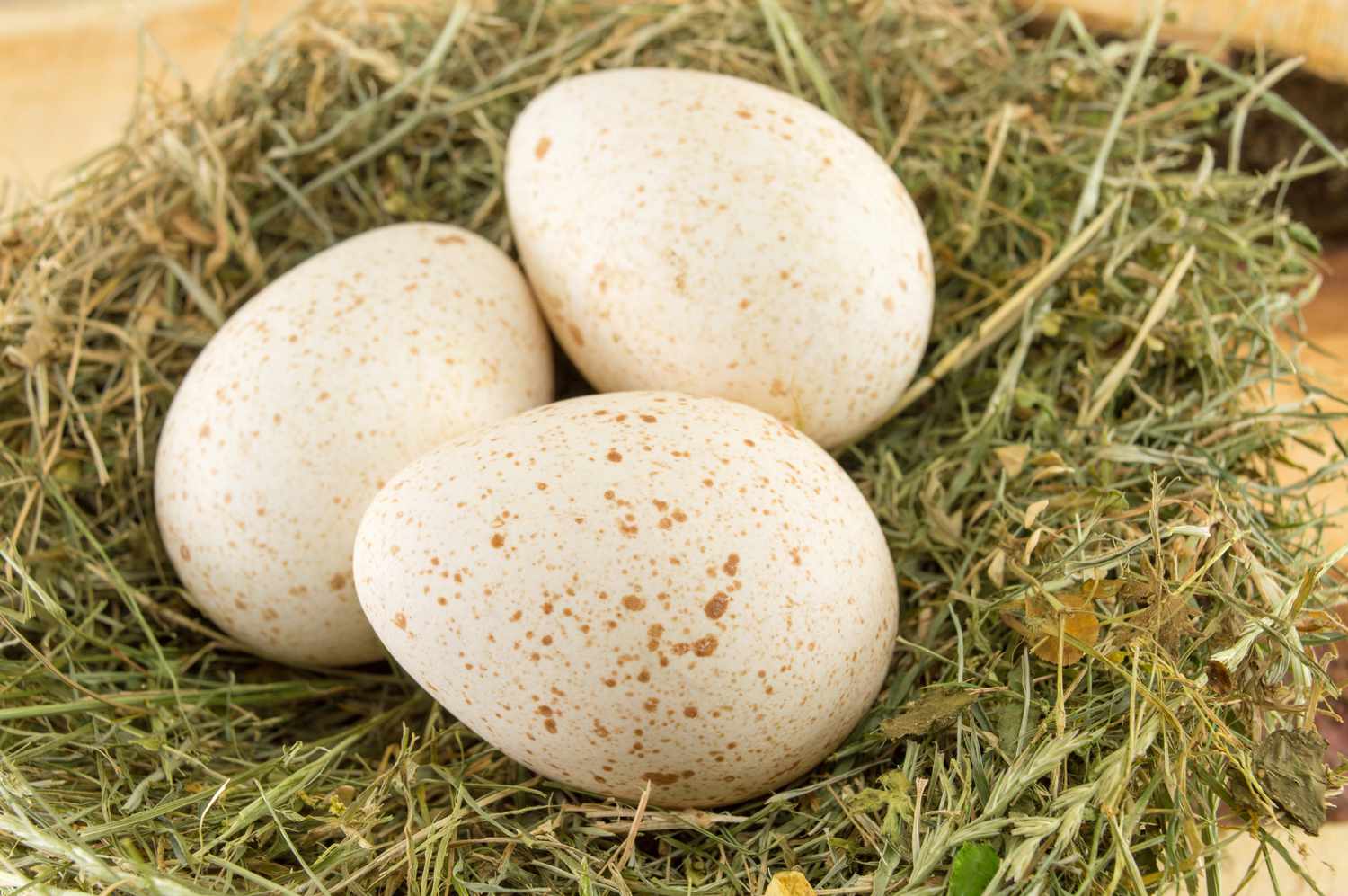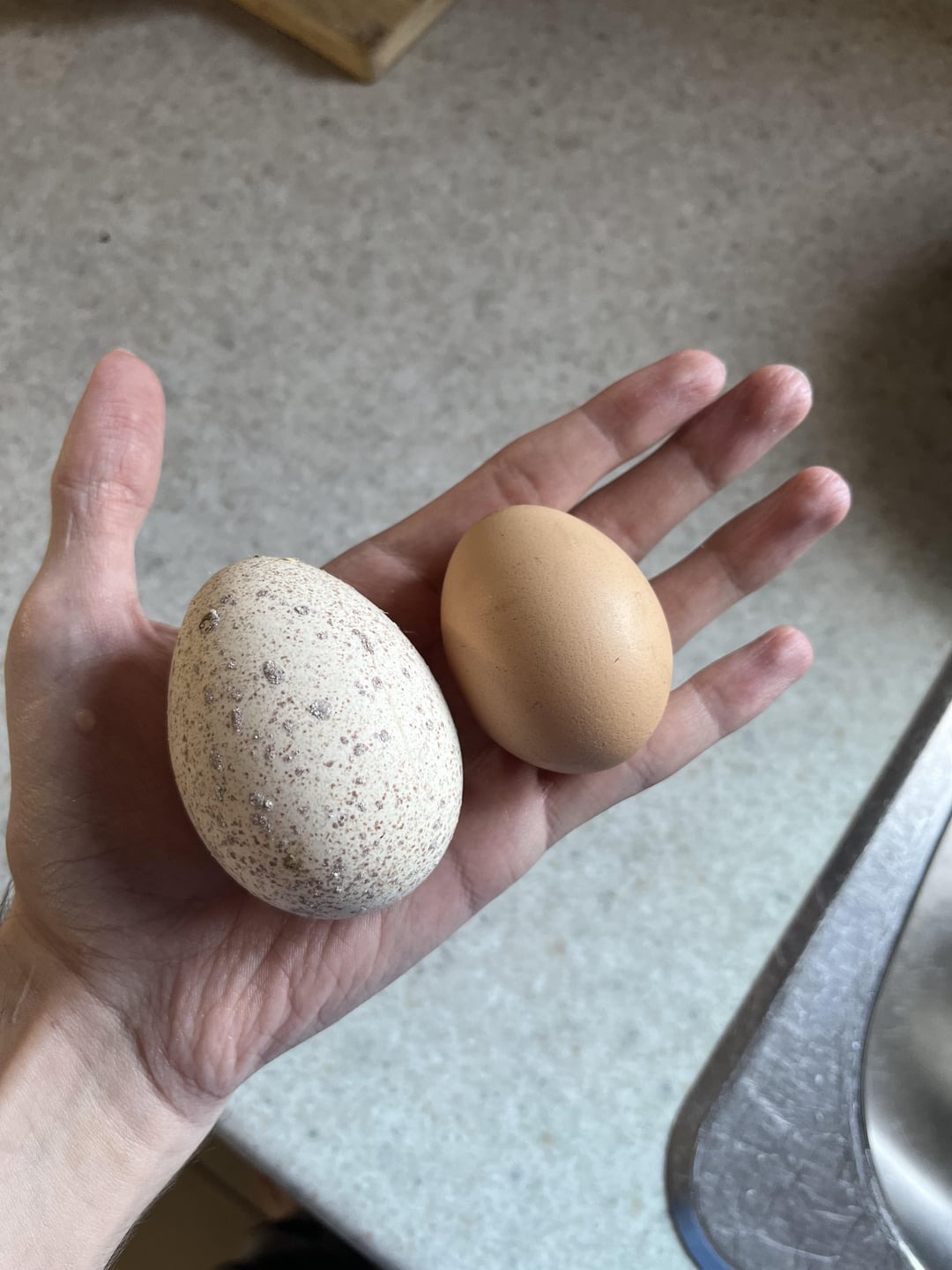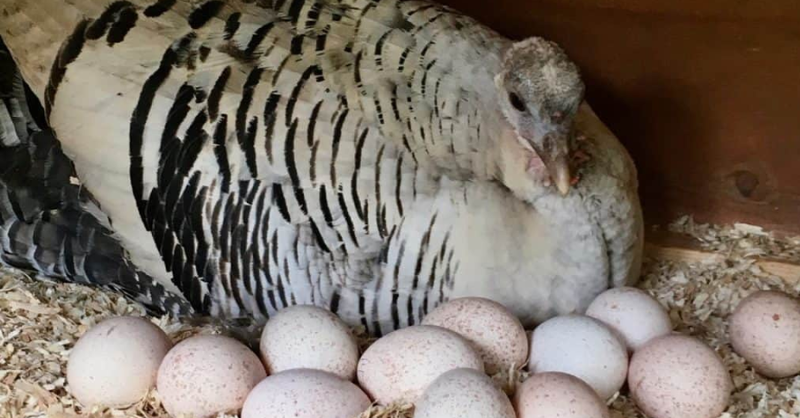Though turkeys take center stage on holiday tables during Thanksgiving and Christmas, their eggs are notably absent from supermarket shelves and breakfast plates.
This absence isn’t due to oversight but rather a combination of biology, economics, and lingering myths.

Turkey vs. Chicken: A Matter of Biology
The core reason turkey eggs aren’t widely available comes down to reproductive biology. Chickens are prolific layers, producing eggs nearly daily, while turkeys lag far behind.
“Turkeys have a longer life cycle, so they need to get to about seven months before they are able to produce laying eggs,” explained Kimmon Williams of the National Turkey Federation in a statement to MailOnline.
Chickens, on the other hand, start laying at around five months and can produce up to six eggs each week, making them far more efficient for egg farming.

Though turkeys take center stage on holiday tables during Thanksgiving and Christmas, their eggs are notably absent from supermarket shelves and breakfast plates.
This absence isn’t due to oversight but rather a combination of biology, economics, and lingering myths.

Turkey vs. Chicken: A Matter of Biology
The core reason turkey eggs aren’t widely available comes down to reproductive biology. Chickens are prolific layers, producing eggs nearly daily, while turkeys lag far behind.
“Turkeys have a longer life cycle, so they need to get to about seven months before they are able to produce laying eggs,” explained Kimmon Williams of the National Turkey Federation in a statement to MailOnline.
Chickens, on the other hand, start laying at around five months and can produce up to six eggs each week, making them far more efficient for egg farming.


